Last Updated: 17/08/2025
Which Common Household Plants Are Toxic to Pets?
Some household plants can be toxic to pets, posing serious health risks if ingested. Learn more here
Author: Dr Teagan Lever BVSc (Hons)
Reading Time: 3 minutes - short read
With houseplants currently experiencing a huge resurgence in popularity, pet parents need to be careful that they are not inadvertently introducing a toxic timebomb for their pets into their homes. Before you head to your local nursery to stock up on some indoor greenery, make sure you are familiar with which plants are safe for any inquisitive minded dogs or cats you have at home.
Devil's Ivy (Epipremnum aureum)
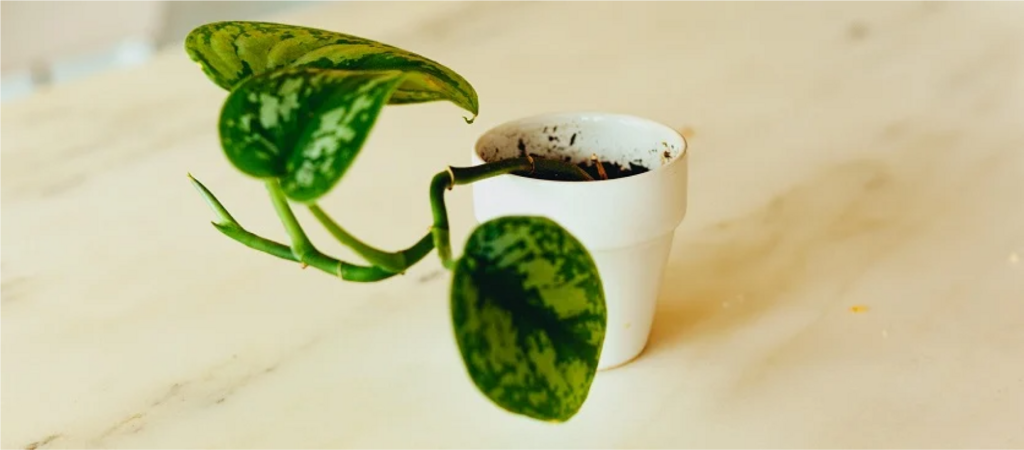
Other names: Pothos, Golden Pothos, Silk Pothos
Easy to grow in soil or water from cuttings, this trailing green vine with medium sized heart shaped leaves has sprung can be found in hipster cafes and Pinterest boards Australia wide.
Toxic to: Dogs, cats and other pets
Symptoms: The leaves of this plant contain insoluble calcium oxalate crystals which cause irritation to the mouth and gastrointestinal tract when chewed or ingested. This irritation most commonly results in swelling and pain of the mouth, tongue and lips, excessive drooling, vomiting and difficulty swallowing.
Pet friendly alternative: With heaps of varieties available and many of them trailing plants, Peperomia species make a great non toxic, hardy alternative.
Peace Lily (Spathiphyllum spp.)
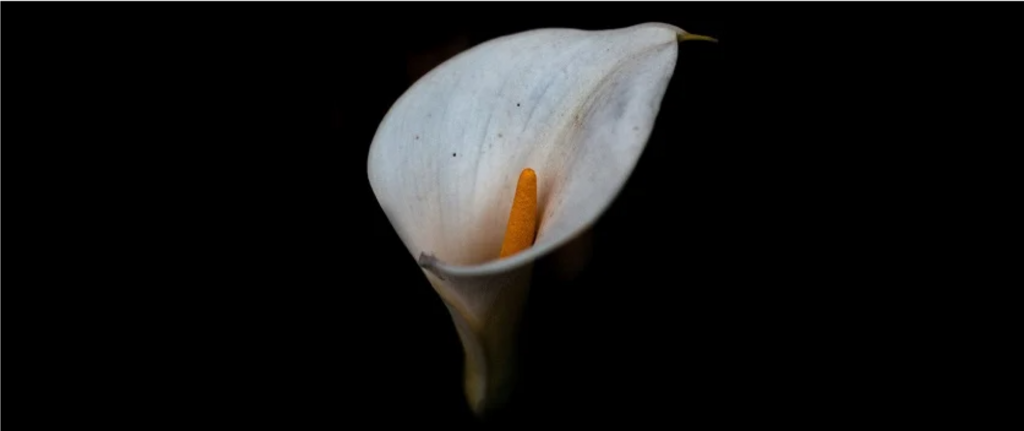
Other names: Spath plant
One of NASA's top 10 recommended plants for improving air quality, Peace Lilies are easy to care for and grow well in low to medium light, making them a popular choice for homes and offices.
Toxic to: Dogs, cats and other pets
Symptoms: Just like Devil's Ivy, the Peace Lily plant leaves contain insoluble calcium oxalate crystals which cause irritation to the mouth and gastrointestinal tract when chewed or ingested. Symptoms of poisoning include burning or irritation of the mouth tongue or lips, drooling, vomiting and also problems with swallowing.
Pet friendly alternative: Living up to its common name, the Cast Iron Plant (Aspidistra elatior) is virtually indestructible and safe for use in homes with pets.
Jade Plant (Crassula argentea)
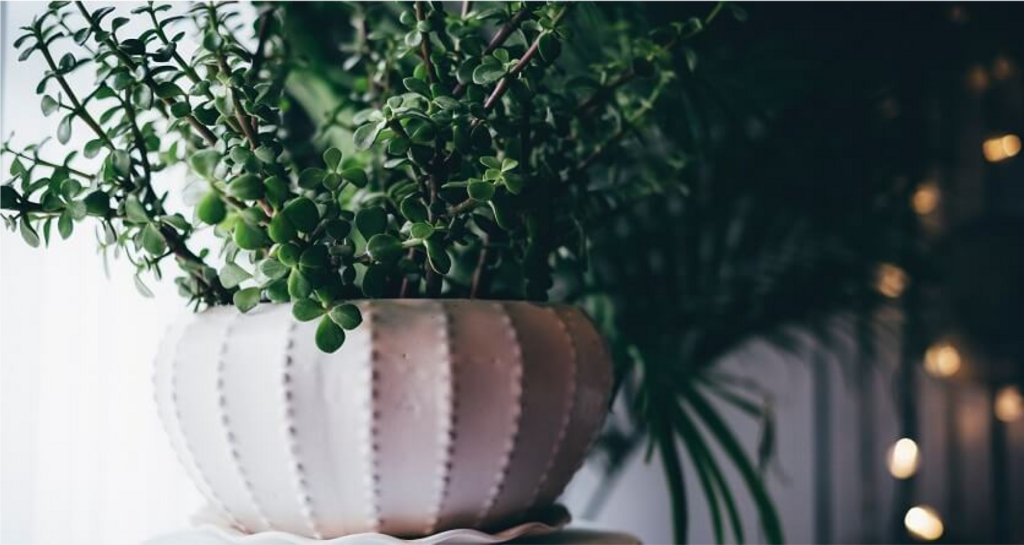
Other names: Dwarf Rubber Plant, Jade Tree, Chinese Rubber Plant Considered by some to be a symbol of luck, Jade Plants are a popular addition to many homes and offices. Unfortunately your pooch or feline friend may feel a little less than lucky if they decide to have a taste!
Toxic to: Dogs, cats and other pets
Symptoms: While exact mechanism of toxicity of the jade plant is unknown, but if ingested it can cause vomiting, depression and incoordination.
Pet friendly alternative: For a similar look without the risk of poisoning try a Haworthia succulent variety instead.
Fruit Salad Plant (Monstera deliciosa)
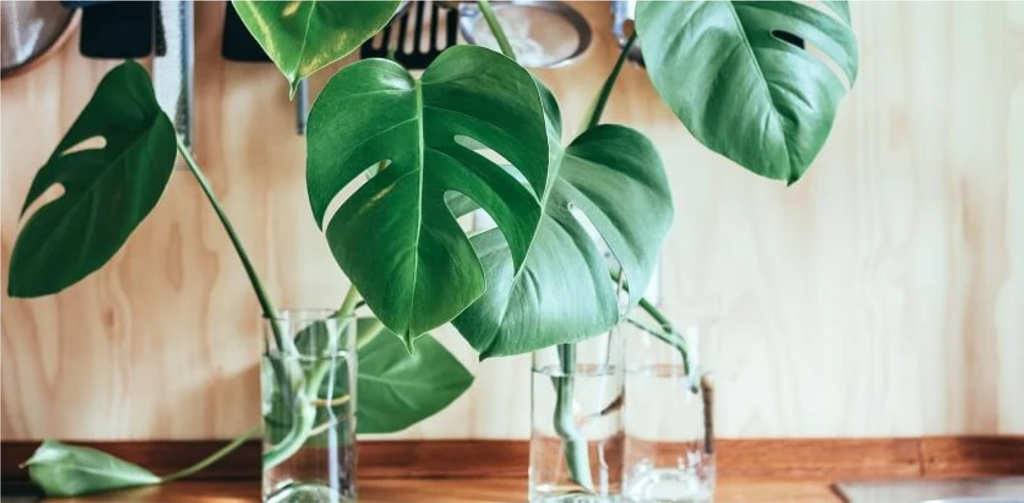
Other names: Swiss Cheese Plant, Mexican Breadfruit, Cutleaf Philodendron
The big, deep green leaves of this plant that make it such an on trend addition to your home decor could give your dog or cat a nasty surprise if they decide to have a taste.
Toxic to: Dogs, cats and other pets
Symptoms: As with Devil's Ivy, and the Peace Lily plant, the leaves of the Fruit Salad Plant contain insoluble calcium oxalate crystals which irritate the mouth and the rest of the digestive system when chewed or ingested. Signs that your pet may have chewed on or ingested part of your Fruit Salad Plant include intense burning or irritation of the mouth, tongue or lips, excessive drooling, vomiting and also difficulty swallowing.
Pet friendly alternative: To add a touch of green to your interior without the unpleasant aftertaste for your pets, a great alternative is the Ponytail Palm (Beaucarnea recurvata).
Sago Palm (Cycas revoluta and Zamia spp.)
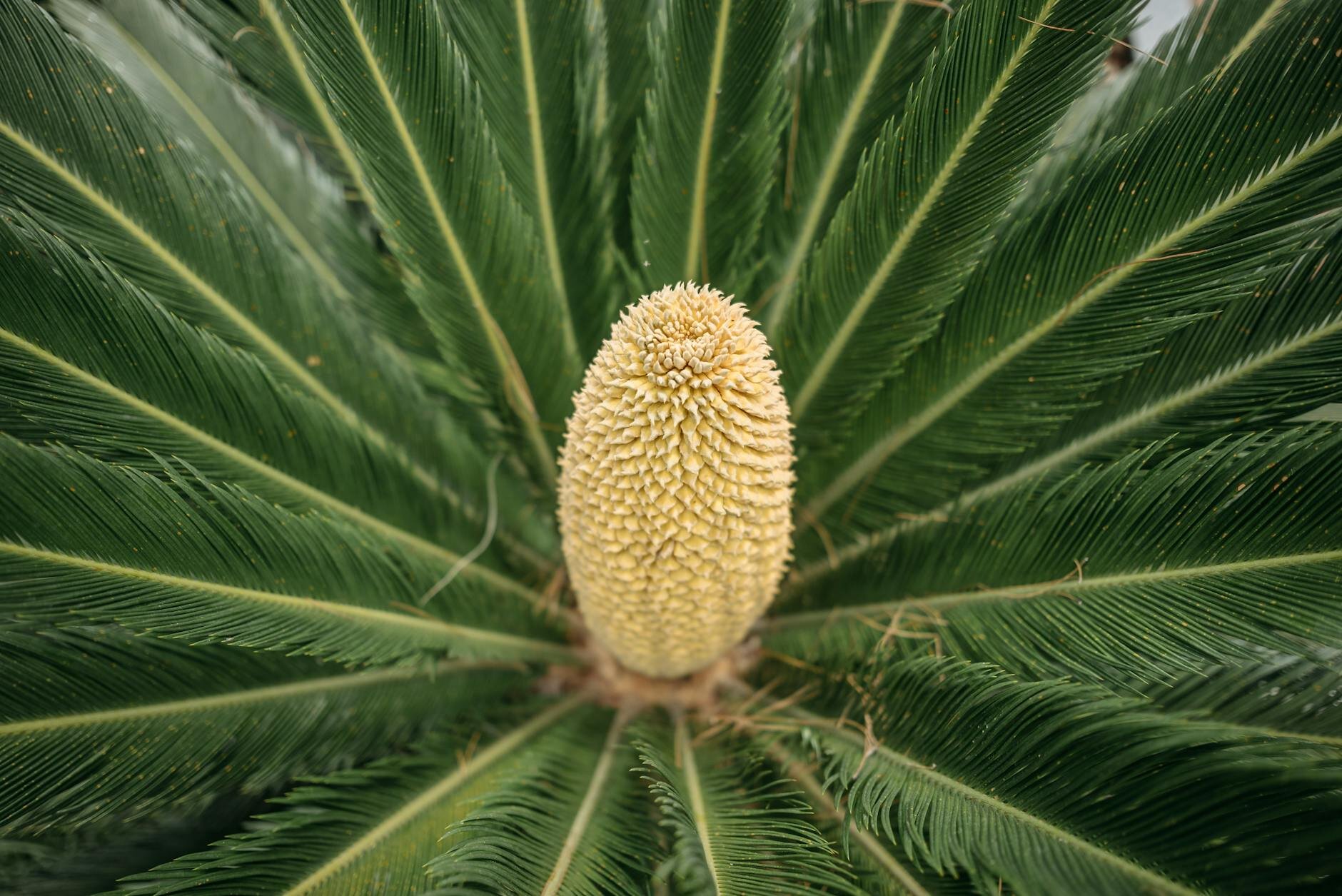
Other names: Cardboard Palm, Cycad, Zamia
Commonly grown both indoors and outdoors the Sago Palm is low maintenance but highly dangerous, not just to pets but inquisitive little humans too!
Toxic to: Humans, dogs, cats and other pets
Symptoms: Cycads, such as the Sago Palm contain cycasin, a toxin that can cause liver damage, liver failure and death. Ingestion of any amount of any part of the Sago Palm by a pet is a life threatening emergency requiring immediate veterinary attention. Symptoms of Sago Palm poisoning include vomiting, jaundice, dark tarry faeces, increased thirst, bruising and failure of blood to clot.
Pet friendly alternative: For that palm tree look without the risk of poisoning, most true palms such as Areca species are non toxic to pets.
In Summary
Adding some indoor plants to your interior can have many benefits for both human and four legged family members, including cleaner air and reduced stress. By choosing non toxic alternatives you can rest easy knowing that if your pet should happen to have a nibble it won't end up in a trip to the vet!
Please note that this article is not in any way an exhaustive guide, always check if a plant is safe for your pets before introducing it into your home. If you do suspect that your pet has ingested a toxic plant seek veterinary advice immediately.
Further Reading
Want to read more? Check out our other articles:
History
Our experts continually monitor the health and wellness space and we update our articles when new information becomes available.
Wed Mar 12 2025
Edited by Dr Teagan Lever BVSc (Hons)Dr Teagan Lever BVSc (Hons)
Head Veterinarian, BVSc (Hons)
Pet Circle's Head Veterinarian, Dr Teagan graduated from the University of Queensland in 2010 and went on to work in small animal and mixed practice in various locations around QLD & ACT before joining Pet Circle in early 2016. Dr Teagan has special interests in dermatology, nutrition and preventative health care. She feels privileged to witness the special bond people share with their pets on a daily basis and enjoys forming lasting relationships with pet parents and their fur children.

